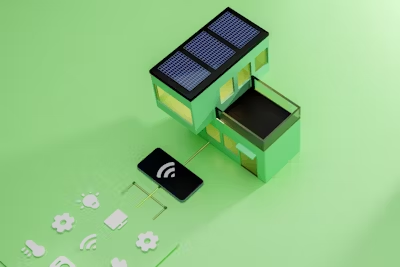In a significant shift in the consumer electronics industry, eco-friendly tech gadgets are quickly gaining popularity, as U.S. consumers demand more sustainable options. On January 10, 2025, industry reports revealed that sales of environmentally-conscious gadgets have surged by 35% over the past year, with consumers increasingly prioritizing eco-friendly features in their tech purchases. From energy-efficient smartphones to biodegradable accessories, the trend toward sustainability is becoming a defining factor in the tech market.
As concerns about climate change and electronic waste grow, tech companies are responding with a new wave of products designed to reduce environmental impact. Major electronics manufacturers like Apple, Samsung, and Google have committed to reducing their carbon footprints, focusing on using recycled materials, improving energy efficiency, and developing products that are easier to recycle. This shift is not only aligned with growing environmental awareness but also reflects an evolving consumer demand for tech products that contribute to a more sustainable future.
Apple, for instance, announced that its entire product line in 2025 will be made from 100% recycled or renewable materials, including the aluminum used in its MacBooks and iPhones. The company has also introduced a new line of biodegradable phone cases and accessories that reduce the use of harmful plastics. Samsung has followed suit, unveiling its new “Eco-Series” smartphones, which feature components made from ocean-bound plastics and include packaging that is 100% recyclable. Google’s new smart devices, including its smart speakers and Nest thermostats, are now produced using recycled materials and energy-efficient manufacturing processes.
“It’s clear that consumers are more conscientious about the environmental impact of their tech products than ever before,” said Michelle Green, a sustainability expert in Los Angeles. “The demand for eco-friendly electronics is changing the way companies approach product design, packaging, and end-of-life disposal.”
The surge in eco-friendly tech is also seen in the growing popularity of refurbished electronics. Companies like Best Buy and Amazon are now offering large-scale refurbished electronics programs, where consumers can purchase pre-owned devices that are thoroughly inspected, restored, and sold at lower prices. This trend not only gives new life to used electronics but also helps reduce the staggering amount of e-waste generated each year, which contributes significantly to landfill overflow.
Furthermore, sustainable accessories are becoming a key part of the trend. From solar-powered chargers to energy-efficient smartwatches and compostable laptop stands, tech consumers are increasingly seeking out products that complement their eco-friendly lifestyle. These accessories not only help reduce energy consumption but also appeal to consumers who are looking for ways to reduce their carbon footprint while maintaining their tech-driven lifestyles.
In addition to product design and accessories, many tech companies are investing in green energy initiatives. Several leading brands are now powering their manufacturing plants and data centers with renewable energy sources such as wind and solar power, further reducing their overall environmental impact.
While the shift toward eco-friendly gadgets is still in its early stages, it’s clear that the demand for sustainable electronics is poised to accelerate in 2025. This new generation of consumers is not only seeking products that meet their technological needs but also those that align with their values of sustainability and environmental responsibility. With major tech companies leading the charge, the future of consumer electronics is becoming increasingly green, and it’s likely that the trend will continue to shape the industry in the years to come.
As consumers become more environmentally conscious, eco-friendly tech gadgets are set to redefine the electronics market, creating a ripple effect across industries and inspiring more companies to prioritize sustainability in their product offerings. With 2025 marking a pivotal year for sustainable electronics, it’s clear that eco-friendly gadgets are no longer a passing trend but a lasting shift in how Americans view the intersection of technology and environmental impact.
